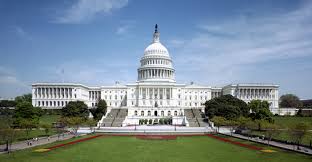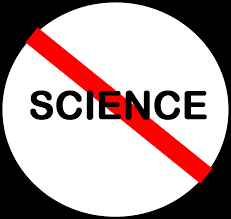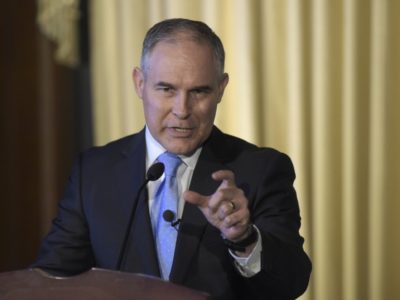U.C. Davis School of Law Launches New Water Justice Clinic
Environmental Justice Expert Camille Pannu Selected to Lead Pioneering Clinic
The U.C. Davis Martin Luther King, Jr. School of Law has launched an exciting new Water Justice Clinic designed to advocate for clean, healthy and adequate water supplies for all Californians. The new Clinic is a project of the Aoki Center for Critical Race and Nation Studies, in partnership with the California Environmental Law and Policy Center, and will offer unique environmental justice advocacy opportunities for King Hall students. Currentl...
CONTINUE READINGWhen EPA Pays Lip Service to Public Comment, the Environmental Community Steps Up
Environment and public health advocates voice their concerns about EPA's regulatory reform efforts under EO 13777
The public health and environmental communities took a small victory on an EPA conference call yesterday. In a three-hour public comment call that could have been dominated by industry seeking regulatory rollbacks, about half of the speakers supported strengthening environmental and public health protections. And many of them took EPA to task for such a superficial public comment opportunity. For background on EPA’s conference call, Trump’s Executive Order 13777 o...
CONTINUE READINGCRA Update: What’s Been Overturned, What’s Still Standing?
Congress and Trump have done some major harm with this tool, but so far, not as much as feared.
We’re getting close to the deadline for Congress final chance to use its override authority under the Congressional Review Act to eliminate Obama Administrations regulations. The deadline for introducing new resolutions has already passed, and the deadline for voting ends around May 10. It’s not clear whether the Senate in particular will have time for many additional votes given the need to pass a continuing resolution to keep the government open in the last week of...
CONTINUE READINGCalifornia Gov. Brown on Climate Efforts
"California isn’t resisting—we’re pioneering an intelligent path forward"
Yesterday’s session at the annual Navigating American Carbon World conference was a bit of a California lovefest, with relief and gratitude spilling over for the state’s leadership on climate policy. The crowd was California’s choir, and Governor Jerry Brown delivered the keynote address to two standing ovations. It’s rare to hear a politician sound, by turns, so fiery, sensible, philosophical, resolved, and even (can I say this?) a little loopy, all in one s...
CONTINUE READINGAnd Here’s to You, Justice Werdegar
Retiring California Supreme Court Jurist Leaves Impressive Environmental Law Legacy
The California Supreme Court recently announced that Justice Kathryn Werdegar will retire this August, after serving for 23 years on California's highest Court. Justice Werdegar is the longest-serving member of the currently-constituted Supreme Court. Over her 23-year career on the Supreme Court, Justice Werdegar has authored at least 25 major opinions on a wide variety of environmental law issues. Her enormous influence on her fellow justices is reflected by ...
CONTINUE READINGCalifornia’s Courageous Plan For Transportation Infrastructure Repair
Tough supermajority votes for legislators to raise gas taxes and vehicle fees
Two weeks ago the California legislature did what many have been hoping for at the national level: pass an infrastructure bill. The issue was the state's nearly $60 billion backlog in deferred maintenance for our transportation infrastructure. But rather than deficit spend or raid other programs, the legislature took a politically brave step with SB 1 (Beall) of raising gas taxes and vehicle registration fees to pay for this work. It took a two-thirds super majority, ...
CONTINUE READINGThink Globally, Act Municipally
Cities can help fight climate change -- and they're forums where ordinary people can have a voice.
Fierce battles will be fought to stem the federal government’s retreat on climate policy. Meanwhile, states like California are mobilizing to pursue their own policies. But not everyone lives in a progressive state, and even progressive state governments can't do everything. We need to consider other channels to make progress, especially in states that aren’t ready to address climate change. This is the first in a series about positive steps being taken through thes...
CONTINUE READINGThe War on Science Continues
With the enthusiastic support of the House Science Committee, Trump is out to shackle scientific inquiry.
Trump's anti-science views, on topics ranging from climate change to vaccines, got a lot of attention during the campaign. His budget puts these attitudes into operational form, and he has also left the White House science office empty, without replacing the presidential science advisor or other scientific staff. But he's certainly not alone in his indifference to science, an attitude that is shared by key members of Congress and of his Administration. Since this ...
CONTINUE READINGA Lame Soundbite From a Flailing Administration
Pruitt's statement yesterday exemplifies why the Trump Administration is in trouble.
Everything that's wrong with the Trump Administration was on display yesterday, thanks to Scott Pruitt. He told "Fox and Friends" that the U.S. should get out of the Paris Agreement because China and India have no obligations until 2030. The fact that he made this comment, and made it on Fox, vividly exemplifies many of the Administration's weaknesses: Blatant falsity. Criticizing the Paris Agreement on this ground is squarely opposite to the truth. Far fr...
CONTINUE READINGThis Wolf Came as Dressed as a Wolf
Trump's views on energy & environment were clear before the election. He's doing what he said.
In terms of energy and environmental issues, Trump has turned out to be as advertised. Last June, I did a post contrasting Clinton and Trump’s views about the environment. Below, I revisit the June post in order to compare what Trump said before Election Day and what he’s done since. In case you’ve forgotten, Clinton’s position on each of these issues was the opposite of Trump’s. No matter how you voted in the last election -- or whether or not you voted at a...
CONTINUE READING











